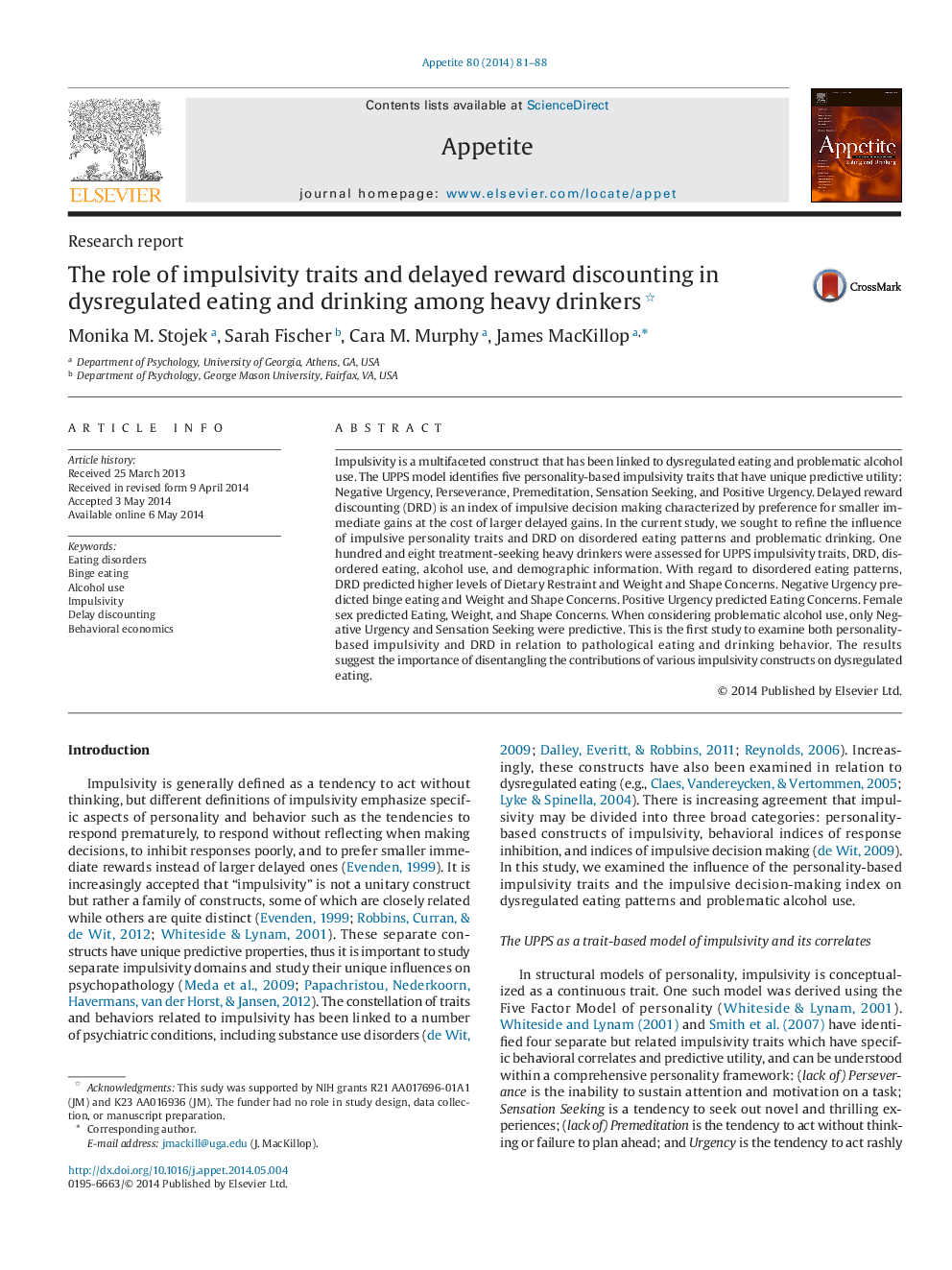| Article ID | Journal | Published Year | Pages | File Type |
|---|---|---|---|---|
| 939415 | Appetite | 2014 | 8 Pages |
•The UPPS model identifies five personality-based impulsivity traits.•Delayed reward discounting (DRD) is an index of impulsive decision-making.•We examined influence of UPPS traits and DRD on problematic eating and drinking.•DRD inversely predicts Dietary Restraint and Weight and Shape Concerns.•NU predicts Weight and Shape Concerns and problematic drinking.
Impulsivity is a multifaceted construct that has been linked to dysregulated eating and problematic alcohol use. The UPPS model identifies five personality-based impulsivity traits that have unique predictive utility: Negative Urgency, Perseverance, Premeditation, Sensation Seeking, and Positive Urgency. Delayed reward discounting (DRD) is an index of impulsive decision making characterized by preference for smaller immediate gains at the cost of larger delayed gains. In the current study, we sought to refine the influence of impulsive personality traits and DRD on disordered eating patterns and problematic drinking. One hundred and eight treatment-seeking heavy drinkers were assessed for UPPS impulsivity traits, DRD, disordered eating, alcohol use, and demographic information. With regard to disordered eating patterns, DRD predicted higher levels of Dietary Restraint and Weight and Shape Concerns. Negative Urgency predicted binge eating and Weight and Shape Concerns. Positive Urgency predicted Eating Concerns. Female sex predicted Eating, Weight, and Shape Concerns. When considering problematic alcohol use, only Negative Urgency and Sensation Seeking were predictive. This is the first study to examine both personality-based impulsivity and DRD in relation to pathological eating and drinking behavior. The results suggest the importance of disentangling the contributions of various impulsivity constructs on dysregulated eating.
